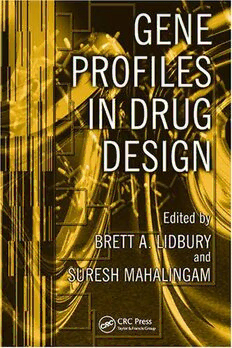
Gene Profiles in Drug Design PDF
170 Pages·2008·9.997 MB·English
Most books are stored in the elastic cloud where traffic is expensive. For this reason, we have a limit on daily download.
Preview Gene Profiles in Drug Design
Description:
With the successful mapping of the human genome, we have entered an age of unprecedented opportunity in which researchers are beginning to apply this vast repository of knowledge to the treatment of human disease. Gene-profiling technologies and the concept of individualized medicine are leading to the development of drugs with enhanced specificity. This promises to lead to more effective treatment of diseases with reduced risk of side effects. Gene Profiling in Drug Design provides insights from leaders in the pure sciences, biotechnology, and other arenas. It emphasizes the science that underpins gene profiling and drug development, and also includes clinical and ethical perspectives from experts in those fields. These explore the broadest health and social implications for this exciting field of science and discovery. The book begins with a discussion of the future clinical impact of genetic diagnosis and gene-based drug therapies. Virally encoded MicroRNA is reviewed, as well as the development of gene-profile-responsive antisense agents. Gene profiles are studied with respect to drug development and cancer research. RNA viruses and RNA-based drugs are also examined. Finally, ethical considerations of this groundbreaking technology are explored. The information presented in this volume provides readers with a greater understanding of the processes and technologies in gene-profile based drug design. Technologies are discussed in sufficient detail so that drug developers can use the book as a general desk reference. It also provides physicians with an important survey of emerging technologies. This book is edited by Brett A. Lidbury and Suresh Mahalingam, noted scientists from the Centre for Biomolecular and Chemical Sciences at the University of Canberra in Australia. They bring together the wisdom of numerous experts to discuss the powerful ways that these new genetic technologies can save lives and improve health.
See more
The list of books you might like
Most books are stored in the elastic cloud where traffic is expensive. For this reason, we have a limit on daily download.
